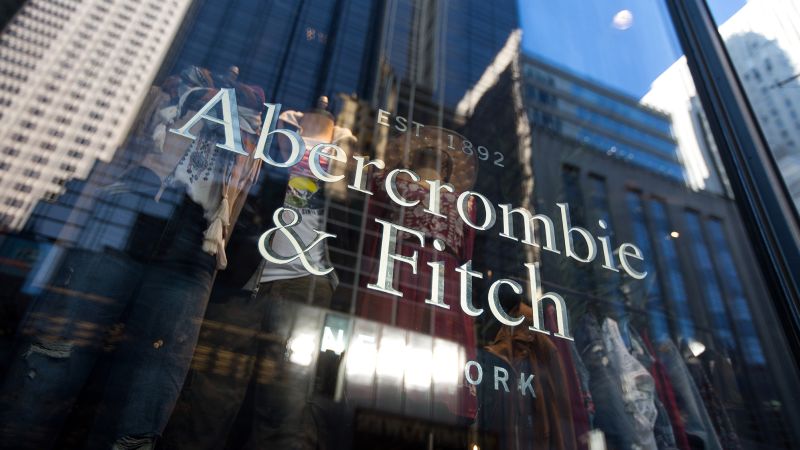Abercrombie & Fitch says it has launched its own investigation into allegations originally published by the BBC that the company’s former CEO, Mike Jeffries, exploited men for sex.
“We are appalled and disgusted by the behavior described in the allegations against Mr. Jeffries, whose employment with Abercrombie & Fitch Co. ended in 2014, nearly ten years ago. Speaking up and coming forward is not easy, and our thoughts are with those who bravely raised their voices,” the retailer said in a statement sent to CNN Tuesday.
“Since being contacted by the BBC, we have engaged an outside law firm to conduct an independent investigation into the issues raised. The company’s current executive leadership team and board of directors were not aware of the allegations of sexual misconduct by Mr. Jeffries,” the statement said. “For close to a decade, a new executive leadership team and refreshed board of directors have successfully transformed our brands and culture into the values-driven organization we are today. We have zero tolerance for abuse, harassment or discrimination of any kind.”
Eight men told the BBC that Jeffries and his partner hosted events in various locations in several countries in which some of them were allegedly exploited for sex. At least some of the parties are alleged to have occurred while Jeffries was the CEO of Abercrombie & Fitch.
The BBC report said the men alleged they were recruited through a middleman who used a network of recruiters, and paid them $500 to $1,000 for every referral.
The BBC said its two-year investigation includes information gathered from 12 men who claimed they either attended or organized events over a six-year period from 2009 to 2015 where sexual activities were performed for and with Jeffries and his partner Matthew Smith.
Several of the men told the BBC there were given the impression by recruiters that there could be a modeling opportunity for them with the brand if they acquiesced. However, the report also said the alleged middleman denied any wrongdoing and claimed the men attended the events “with their eyes wide open.”
As part of its investigation, the BBC said it collected emails, flight tickets and other documentation that it says lend credence to the men’s accounts, in addition to interviews done with other sources, including former household staff.
Jeffries’ attorney, Brian Bieber, provided a response to CNN to the BBC report, saying that “Michael is 79 years old and retired. In years past, he has chosen not to comment on media reports, documentaries, and stories of any kind as they relate to his personal life – and does not plan on doing so now.”
Abercrombie & Fitch abruptly announced Jeffries’ retirement in 2014 from his position as CEO of the teen apparel chain, a role he had held since 1992.
The company suffered multiple consecutive quarters of sales declines at its stores open at least a year by the time of his departure, and Jeffries had become a lightning rod for controversy, especially after he said in a 2006 interview with Salon that the brand’s clothes were more for “cool” and “good-looking” people. Jeffries eventually apologized years later for his interview comments.
Jeffries also drew criticism from consumers and youth advocacy groups who blasted the brand’s marketing tactics under his reign of featuring scantily clad teen models in its advertising, and often having shirtless male employees greeting customers to its stores.
In 2002, the retailer pulled controversial T-shirts after complaints they were racially insensitive. One shirt showed Chinese laundry workers with conical hats and the phrase, “Wong Brothers Laundry Service: Two Wongs Can Make It White.”
In 2003, the company – under pressure from some consumer groups – said it would stop issuing racy catalogs and halt the publication of its holiday book, which featured nude young adult models in sexually suggestive poses.
Under his watch, Abercrombie & Fitch also agreed in 2004 to pay $40 million to settle a class-action lawsuit that alleged the company engaged in workplace discrimination by promoted White workers ahead of Black, Hispanic and Asian employees, according to The New York Times.
Read the full article here




